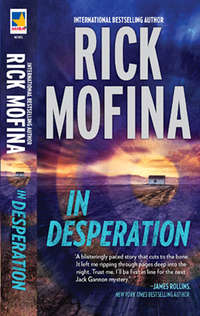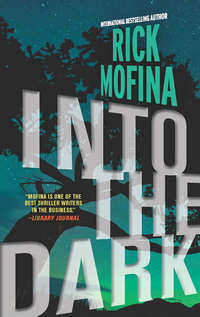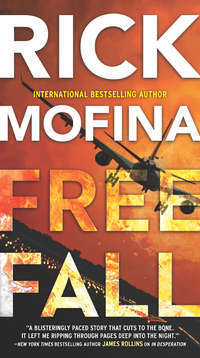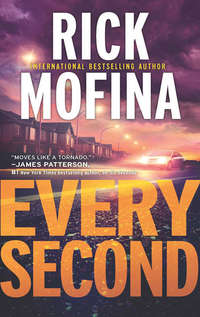
Полная версия
Six Seconds
“Corporal Graham?”
Graham moved closer to the new arrival. He was in his midthirties. Maybe six feet tall, wearing jeans and a checkered shirt under a black leather bomber jacket.
“Owen Prell. Inspector Stotter sent me.”
“Got here pretty quick.” Graham shook his hand.
“I was already in Canmore.”
“Mike said you joined Major Crimes from Medicine Hat.”
“Worked GIS. They just set me up by your desk at the office. I’m looking forward to working with you.” Prell looked back to the patrol cars and uniformed officers. “The other members want to know if you’re done with the witnesses. The people would like to go.”
“We’re almost done with them.” Graham flipped his pages. “Get them to surrender their passports. We’ll run them through Interpol. Just say it’s procedure and we’ll return them soon.”
“Will do.”
As Prell turned, a helicopter throbbed overhead, skimming the river. The RCMP’s chopper out of Edmonton. The instant it disappeared, Graham heard his name. The FIS member processing the canoe was waving for him to come and see something.
Something important.
Wedged in the rocks where the canoe crashed was a small metal plate displaying the label Wolf Ridge Outfitters. The screw holes aligned with those on the canoe. It was a rental. Number 27.
Rental agencies kept records.
“Prell!”
The constable returned with his radio. An urgent request was made to the telecomms dispatcher to contact Wolf Ridge and cross-reference its rental agreement for Number 27 with the park’s permits and wilderness passes.
It took twenty minutes for the information to come back.
The canoe was rented by Ray Tarver, of Washington, D.C.
Park permits showed Ray, Anita, Tommy and Emily Tarver as the visitors registered to drive-in campsite #131.
6
Faust’s Fork, near Banff, Alberta, Canada
Campsite #131 was upstream, deep in the backcountry, secluded in a dense stand of spruce and pine, offering sweeping views of the river and the rugged cliffs of the Nine Bear Range.
When Graham arrived with the others, he saw no movement.
A late-model SUV was parked near a large dome tent. It was a typical campsite: propane camping stove, lawn chairs, four life jackets stacked neatly against a spruce tree, food kept a safe distance from the tent, and other items, including shirts and pants, hanging from a clothesline tied between two pine trees. Shouts for the Tarvers were answered by the river’s rush and the thud of the search helicopters.
The site was silent.
Lifeless.
Graham declared it a second scene and as Prell and the others taped it off and radioed for a request to run the SUV’s Alberta plate, he entered the tent alone.
Inside, he detected the pleasant fragrances of soap and sunscreen. There was also the sense that something had been interrupted but he couldn’t put his finger on it. Time had stopped here. To one side, was a sleeping bag big enough for two adults. Next to its left pillow, a Danielle Steel paperback. Next to the right, a large flashlight.
Across the tent, two smaller sleeping bags, side by side. A Sponge Bob comic was splayed open on one, while a pink stuffed bunny sat on the other, arms open, awaiting its owner’s return.
Graham picked it up, looked into its button eyes.
Children’s clothes in bright colors erupted from small backpacks: sweaters, small pants. The larger bags on the opposite side were also open, clothes spilled from them, but not in a disheveled way.
It was orderly.
Graham searched in vain for a purse or wallet. Campers often hid them or locked them away. After making notes, he stepped outside, where Prell updated him.
“The SUV’s a rental from an outlet at Calgary International. Customer’s Raymond Tarver, same D.C. address.”
“Anything inside?”
“It’s locked.”
“Get the rental agency to open it for us ASAP. Tell them it’s a police emergency. Then we’ll get forensics to process it and this site. Nobody tromps around here or touches anything.”
Graham nodded upriver.
“What about the people in the neighboring sites?”
“Some of the guys have started a canvas.”
“Good, I want statements, time lines, background checks.”
“Will do. Corporal, what do you suspect happened to the parents?”
“I don’t know.” Graham surveyed the site again: the life jackets, the cooler of food kept at a proper distance from the tent, a pail of dirt near the fire ring—did they cook hot dogs, toast marshmallows and huddle under the stars together? Did they die together? “These people follow the rules, keep things safe, take no risks. I don’t know what happened.”
Later that night, after Prell had gone back to Calgary, Graham watched flashlights and headlamps probe the dark river valley as SARS teams continued searching. Graham was alone at his own campsite sitting before a fire, listening to transmissions echoing from the borrowed radio next to him.
As the searchers reported, Graham reviewed his case.
After a mechanic from the rental agency had opened the SUV, Prell found more items, including a wallet, a purse and U.S. passports belonging to the Tarvers. The flames illuminated the faces of Raymond, his wife, Anita, their son, Thomas, and their daughter, Emily, the girl who took her final breaths in Graham’s arms.
What went wrong here?
Graham wanted to believe that this was your nice, average American family. But where were Ray and Anita Tarver?
Did they drown their children?
Or drown with them?
What happened?
Had they been having a blissful mountain vacation before a horrible accident? Or was something else at work? Was there stress in the family? What was going on in the lives of the Tarvers before the tragedy?
What about his own life?
The firelight also captured the urn visible through the screen door to his tent.
Graham ran a hand across his face.
It’d been a hell of a day. He’d come up here to one of Nora’s favorite spots, to distribute the rest of her ashes. He’d come up to quit the force. He couldn’t go on without her because he had nothing left.
Nothing.
Because it was his fault.
Then today happened. And in his darkest moment when he was in the river, certain he would die, he heard her, telling him not to give up.
To keep going.
And then came Emily Tarver’s final cryptic words.
How could he walk away from this?
He owed the dead.
The radio sputtered.
“Repeat, Sector 17—”
“We’ve got something here!”
7
Blue Rose Creek, California
It was nearly 1:30 a.m.
In the quiet, Maggie was losing hope of ever meeting Madame Fatima. As she got ready for bed, she considered all the messages she’d left. All unanswered.
She’d try again tomorrow.
Maggie drew back her bedsheet then froze.
What was that?
She’d heard something. Down the hall. In the study area off the living room. She glanced around, listening for a moment.
Nothing.
She was exhausted, dismissed it and tried to sleep but a million fears assailed her.
Were Jake and Logan dead?
Why hadn’t she heard from them? She ached to hold Logan, to talk to Jake.
Just pick up the damn phone and call me, Jake. Let me know you’re all right.
Why are you doing this?
Why?
For much of her life, Maggie had been a loner. But tonight she wished she had a friend, someone to talk to. When Maggie was six years old, her mother committed suicide after a drunk driver killed Maggie’s older sister, April, as she was riding her bike. Maggie’s dad raised her alone until she married Jake. Then her father took up with a younger woman, a drug addict he’d met in rehab.
He moved to Arizona and Maggie hadn’t spoken to him in years.
She’d called him to see if he’d heard from Jake, but it had been a short conversation.
No.
Jake had no family either. His parents divorced after he’d left high school. His father died of cancer five years ago. His mother died three years back.
Maggie and Jake had always kept to themselves, happy to have each other. Able to handle any problem together.
Until this.
What really happened to Jake in Iraq?
Maggie knew he’d driven on secret missions and that his convoys often came under fire, but he refused to tell her anything as she worried about his brooding, his nightmares, the outburst.
One day, Jake went with her to the supermarket where they’d bumped into Craig Ullman, Logan’s soccer coach. As they talked, something icy flitted across Jake’s face. A few nights later in bed, he turned his back to her.
“I know you slept with Ullman when I was over there.”
She was stunned.
Not only was Jake wrong, he scared her because it seemed as if he was losing it. Then came the scene at one of Logan’s games. Jake had been out of town and arrived late. Logan waved from the field, Maggie waved from her place among the parents in lawn chairs on the sideline.
Jake ignored them, marching up to Craig Ullman.
“I know, asshole,” Jake said.
Ullman looked up from his clipboard, bewildered.
“Is something wrong, Jake?”
“You were banging my wife while I was away. I fucking know it!”
“What?”
Jake drew back his fist and Maggie grabbed it.
“No, Jake! Stop it! We have to go home. Craig, I am so sorry.”
Jake stared at her, at Logan who’d watched it all, along with everybody else. Jake just walked off, drove away, and spent the night in his rig, parked in the driveway of their home, exiled from the people who loved him.
She and Logan endured the humiliation and, in the days that followed, Jake refused to speak of the incident. He went on several long-haul jobs while Maggie called anonymous crisis lines to find a way to fix their lives.
She did all that she could for her family.
Maggie opened her eyes.
There it is again.
The noise.
A bit louder this time.
She got out of bed to check.
She went into the hallway and looked around. Unease rippled through her as she headed for the living room and the study area. Nothing obvious. Yet something felt wrong. She went to the bathroom, checked behind the shower curtain.
Nothing.
She went to Logan’s room. Nothing. She went back to the living room and this time she went deeper into the study area where she kept her computer and her records on Jake and Logan.
The tiny hairs on the back of her neck stood up.
Her papers had been shuffled, some had spilled onto the floor.
Had someone been in her home?
Maggie looked at the patio door just off the study at the back of the house. It was open by about four inches. She closed it. Locked it.
Did she leave it open?
She’d been careless before when she was lost in her thoughts.
If she did, it would explain her scattered file. It was breezy tonight.
What’s that?
A faint trace of something. A lingering scent she couldn’t identify.
Maybe it was nothing.
Was she so stressed her mind was playing tricks on her?
This is stupid. She couldn’t handle this right now.
No. It was strange, but she could feel a presence.
Maggie jumped as her phone rang.
Who’d be calling at this hour?
Hope fluttered in her stomach then fear clawed at her.
“Hello?”
Silence swallowed her answer. The incoming caller was BLOCKED, according to her caller ID.
“Hello? Who’s there?”
Nothing. No breathing. No background noise. Only silence.
“Who are you calling, please?”
Through the window Maggie saw a car whisk down the street with only its parking lights on.
What’s happening?
She hung up and thrust her face in her trembling hands.
Was she losing her mind?
8
Washington, D.C.
North of the White House, beyond the Capitol and the Washington Monument, Carol Mintz analyzed potential threats to the security of the United States.
The pope’s upcoming visit to the U.S. made her even more tense.
Watch for everything. Note anything, her supervisor had advised her.
Sure. No problem. That’s what we do here twenty-four-seven. It never stops.
Mintz’s keyboard clicked softly as she scrolled through the secret file from the U.S. Embassy in Libya.
A French intelligence source listening to Algerian insurgent operatives had intercepted radio traffic out of Tripoli. The chatter indicated a possible shipment of hostile cargo from Africa was nearing the U.S.
No other information was known.
Mintz, an intelligence specialist, checked her archives, confirming what she’d suspected. This one had first surfaced a few weeks ago with an unsubstantiated report of a freighter steaming from Morocco’s Port of Tangier, the cargo thought to be drugs from Ethiopia. According to the latest information, that ship had navigated the Suez, crossed the Indian Ocean and was now thought to be somewhere in the Pacific Ocean.
Still unsubstantiated.
So why was this flaring up again?
Tripoli advised to stand by for an update.
More information would be good. This was going to be another long day.
Mintz worked in the old naval intelligence base known as the Nebraska Avenue Complex. Her office was among some three-dozen buildings on the thirty-eight-acre site, near the operations center of the Department of Homeland Security, about fourteen miles from where terrorists had slammed a jetliner into the Pentagon.
The DHS’s mission was to prevent further strikes.
Mintz’s job was to track cases and assess the threat with her counterparts at the CIA, FBI, DIA, NSA, Secret Service and various other agencies.
Her team was responsible for distilling intelligence on incoming ships and planes.
Mintz bit her lip as she glanced at her copy of the morning’s New York Times. A front page headline indicated foreign intelligence agencies were detecting increased levels of terrorist activity—activity that was aimed at heads of state.
Ain’t that the truth.
Earlier in the week they’d helped process a threat through Australian and British security services indicating that two men, suspected to be terrorist operatives, had boarded a 747 on a Hong Kong-to-Sydney flight connecting to San Francisco. U.S. fighters were scrambled.
Fingerprints obtained covertly from their drinking cups in-flight by two American agents aboard and scanned in-flight to Washington, had confirmed the subjects’ identities and ruled out a threat.
Everyone stood down on that one.
Passengers had never known of the events that had unfolded around them.
Mintz reached for a carrot stick just as her computer flashed with a new report.
The embassy in Amsterdam had issued a classified threat. A jailed passport forger in Istanbul had told Turkish police interrogators that a ship was carrying several concealed containers of explosives that would be detonated when it reached Boston Harbor. Registered to a numbered company in Aruba, the vessel had left Rotterdam and was now approaching U.S. waters.
Mintz grabbed her phone when her computer flashed with an update from the Central Intelligence Agency.
The illicit Rotterdam cargo was a dozen mail-order brides smuggled out of Moscow. No explosives were located. No threat. It was common for criminal sources to inflate their claims to better bargain with prosecutors.
Thank you, Langley, for sharing.
Mintz massaged the knot of tension in the back of her neck as she looked at the National Threat Advisory displayed on the wall behind her.
Today we are yellow—an elevated risk of terrorist attacks.
Her computer flashed with an update on the African freighter.
It was still headed across the Pacific to the U.S. The hostile substance was still suspected to be illicit drugs, possibly hashish or qat, a narcotic leafy substance, from Ethiopia.
Fine, Mintz thought, the data seemed to be going full circle.
Still, she directed it to her other agencies.
Sharing information to connect the dots. Once more, over to you fine people at the Coast Guard, Customs, the DEA and the gang at CT watch, who’ve probably already handled this one.
Then Mintz noticed that she’d just received a security look-ahead from the Secret Service’s Dignitary Protective Division—the guys who were protecting the pope during his U.S. visit in a few weeks’ time. Mintz scanned the updates on the papal travel agenda. Future destinations and considerations of interest to all security agencies.
Tapping her finger on her desk, Mintz contemplated some of her recent files.
She decided to share them with Secret Service Intelligence Division.
Mintz appreciated that they were going full tilt over there, given they had the lead to protect the Holy Father.
She was sorry to pile up their workload, but her orders were to share everything.
Even an unconfirmed shipload of drugs from Ethiopia.
And let’s hope that’s all it is.
9
Calgary, Alberta, Canada
Searchers in Sector 17 found Anita Tarver’s corpse entangled in a logjam along a stream that flowed off the Faust River.
Less than twenty-four hours later, her naked body lay on a stainless steel tray in the autopsy room of the Calgary Medical Examiner’s Office, a few feet from the bodies of her son and daughter.
As Graham watched Dr. Bryce Collier, the pathologist, and his assistant conduct the procedures, he imagined moments in Anita’s life with her children. The birthdays. The Christmases. Getting them ready for school. Their excitement at the big plane trip for a vacation in the mountains. Anita kissing them good-night under the stars.
Had they known what was coming?
Like most detectives, Graham disliked autopsies. But it was part of the job. In his years as a Mountie he’d seen the aftermath of fires, electrocutions, drownings, stabbings, shootings, hackings, hangings, strangulations, beatings with hammers, bats, hockey sticks, pipes, car-wreck decapitations and lost hikers entombed in ice.
But no matter how many autopsies he’d viewed, he could never adapt to the room’s frigid air, the multicolored organs, the overpowering smells of formaldehyde and ammonia. Because they all signified the penultimate defeat.
And now, more than ever, it signified that he was to blame for his wife’s death.
When the autopsies on Anita Tarver and her children were completed Graham joined Collier in his office. He liked Collier’s tiny Bonsai tree and the calming gurgle of his small feng shui fountain. Objects of optimism. What always gave Graham pause each time he came here was the large print beside Collier’s framed degrees and awards: Van Gogh’s Twilight, before the Storm: Montmartre.
The worst is still to come, Graham thought.
Collier opened a can of diet cola, poured it into his ceramic coffee mug and began making notes in his file.
“I’m attributing cause as consistent with blunt trauma from the rocks and the manner as accidental. Noncriminal.”
“Not a doubt in your mind?”
“Unless you know something we don’t?”
“Emily tried to tell me something before she died.”
“Yes, Stotter mentioned that it was incoherent.”
Graham exhaled slowly.
“Isn’t that correct, Dan?”
“It is. But we haven’t found the father yet and there’s every indication he was with them in the park.”
“You think daddy did it?”
“I don’t know what to think, Bryce.”
“I see. Well, unless something concrete tells me otherwise, what we have here is a wilderness accident.” Collier sipped from his mug. “We need dental records to make positive identifications. Do you have next of kin for the call?”
Graham consulted his notes. On the park registration form, in the section on who to alert in case of emergency, the Tarvers had listed Jackson Tarver in Belts-ville, Maryland.
“Ray Tarver’s father. I’ll make the call back at my office.”
Graham wheeled his unmarked Chevrolet sedan out of the M.E.’ s lot and headed east on Memorial Drive which hugged the Bow River across from Calgary’s gleaming office towers. After passing the Calgary Zoo, he took the Deerfoot Trail expressway, north to the Southern Alberta District headquarters for the RCMP.
The Stephen A. Duncan building near the airport.
In the Major Crimes section he saw no sign of Corporal Shane Wilcox, the file coordinator, or Prell. Good. Graham was a team player, but he liked working alone. He started a fresh pot of coffee then went to the washroom and studied the mirror.
What the hell was happening?
What was the use of going on? Without Nora, his life no longer held any meaning. Maybe that’s why he risked it, in his vain attempt to save the little girl. But who was he really trying to save? What happened to him in the water? He swore to God he’d heard Nora telling him not to give up.
And the girl?
Her dying words haunted him.
Everyone believed it was a tragic accident but he remained uncertain.
Maybe he was losing his mind.
He splashed water on his face then went to his desk. It was neat and, unlike the desks of the other Mounties, it was bereft of framed photos of loved ones. No keepsakes or mementos to hint at his personality. Just a phone, a glass cup holding pens and pencils, a yellow legal notepad and the Tarver file.
That’s all he had left in this world.
He opened the folder and prepared to make the call to notify the Tarvers’ next of kin. Being the bearer of news that destroyed worlds was also part of the job.
The worst part.
As a traffic cop, Graham had been punched, slapped, and had people collapse in his arms as he stood at their door, cap in hand, to tell them what no one should ever have to hear.
Ever.
At times they’d see his police car pull up, watch through the living-room window as he got out and approached their home. They’d refuse to let him in. Because they knew. They knew that as long as they never heard what he was going to tell them, their world would remain intact. If they didn’t hear the words then their daughter, their son, sister, brother, mother, father, husband or wife would not be dead.
No one knew how much he feared the day it might happen to him.
Then it did happen.
“We couldn’t stop the bleeding. We did all we could for her. I’m so sorry.”
After five rings, a woman answered the phone in Maryland.
“I’m calling for Mr. Jackson Tarver.”
“One moment please, he’s in the yard.” Footsteps on a tiled floor, a back door creaked. “Jack! Phone! I think it’s that salesman again!” A man far off grumbled something as he approached the phone. Graham squeezed the handset, grateful he was alone in his office.
“Hello.”
“Mr. Tarver? Mr. Jackson Tarver?”
“Yes?”
“Sir, Corporal Daniel Graham with the Royal Canadian Mounted Police in Calgary.”
“Police?”
“Yes. Sir, I’m sorry to disturb you at home, but it’s important that I confirm your relationship to Raymond, Anita, Tommy and Emily Tarver of Washington, D.C.”








